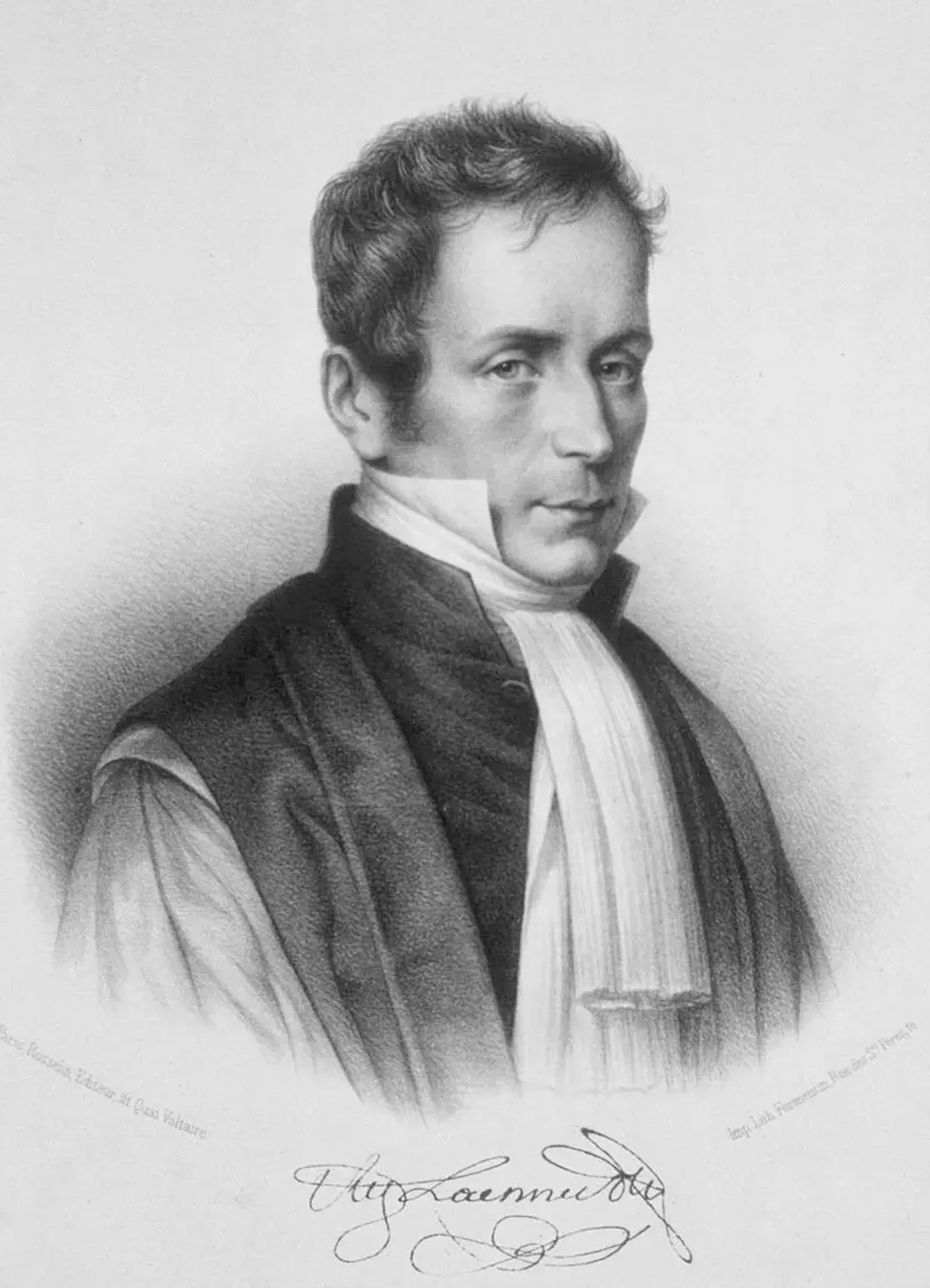- /
- Celtic calendar /
- 8th /
- August 13 /
- August 13, 1826

René-Théophile-Hyacinthe Laennec, the French physician who invented the stethoscope, died on August 13, 1826. Born on February 17, 1781, in Quimper, Brittany, Laennec made groundbreaking contributions to the field of medicine, particularly in the study of diseases of the chest.
Invention of the Stethoscope
Background: Laennec invented the stethoscope in 1816 while working at the Necker-Enfants Malades Hospital in Paris. Before his invention, doctors often relied on placing their ear directly on the patient’s chest to listen to heart and lung sounds, a method known as immediate auscultation. This technique was often ineffective, particularly with obese or female patients.
Inspiration and Development: The idea for the stethoscope came to Laennec when he observed children playing with a long, hollow stick, using it to transmit sounds. He rolled up a piece of paper into a tube and placed it against a patient’s chest, finding that it amplified the sounds of the heart and lungs. He later refined this idea, creating a wooden tube, which he called the “stethoscope,” from the Greek words “stethos” (chest) and “skopein” (to examine).
Impact on Medicine: The invention of the stethoscope revolutionized the practice of medicine by allowing physicians to listen to the internal sounds of the body with greater clarity and precision. This innovation led to significant advances in the diagnosis and understanding of various chest conditions, including tuberculosis, pneumonia, and heart disease.
Contributions to Medicine
Research on Tuberculosis: Laennec is also known for his pioneering work in the study of tuberculosis, a prevalent and deadly disease at the time. Using the stethoscope, he was able to identify the characteristic sounds associated with the disease, which greatly improved its diagnosis. His research laid the groundwork for future studies on respiratory diseases.
Publications: In 1819, Laennec published his seminal work, “De l’Auscultation Médiate” (“On Mediate Auscultation”), in which he detailed the use of the stethoscope and described the various sounds associated with different chest diseases. This book became a foundational text in the field of medicine and established Laennec as one of the leading physicians of his time.
Death and Legacy
Death: René Laennec died on August 13, 1826, at the age of 45, from tuberculosis, the very disease he had studied so extensively. His death was a significant loss to the medical community, but his contributions continued to influence the practice of medicine long after his passing.
Legacy: Laennec’s invention of the stethoscope and his research on chest diseases had a profound and lasting impact on the field of medicine. The stethoscope remains an essential tool in medical practice today, symbolizing the art of diagnosis and the doctor-patient relationship. Laennec is remembered as a pioneer of modern clinical medicine and a key figure in the history of medical diagnostics.
René Laennec’s work exemplifies the intersection of innovation and clinical practice, and his legacy continues to be honored in the medical field worldwide.